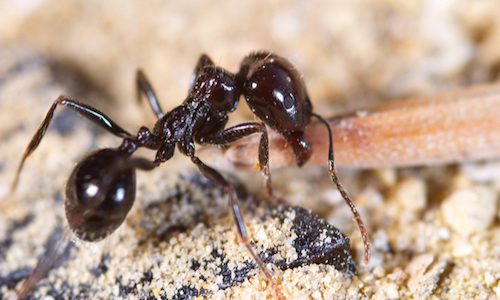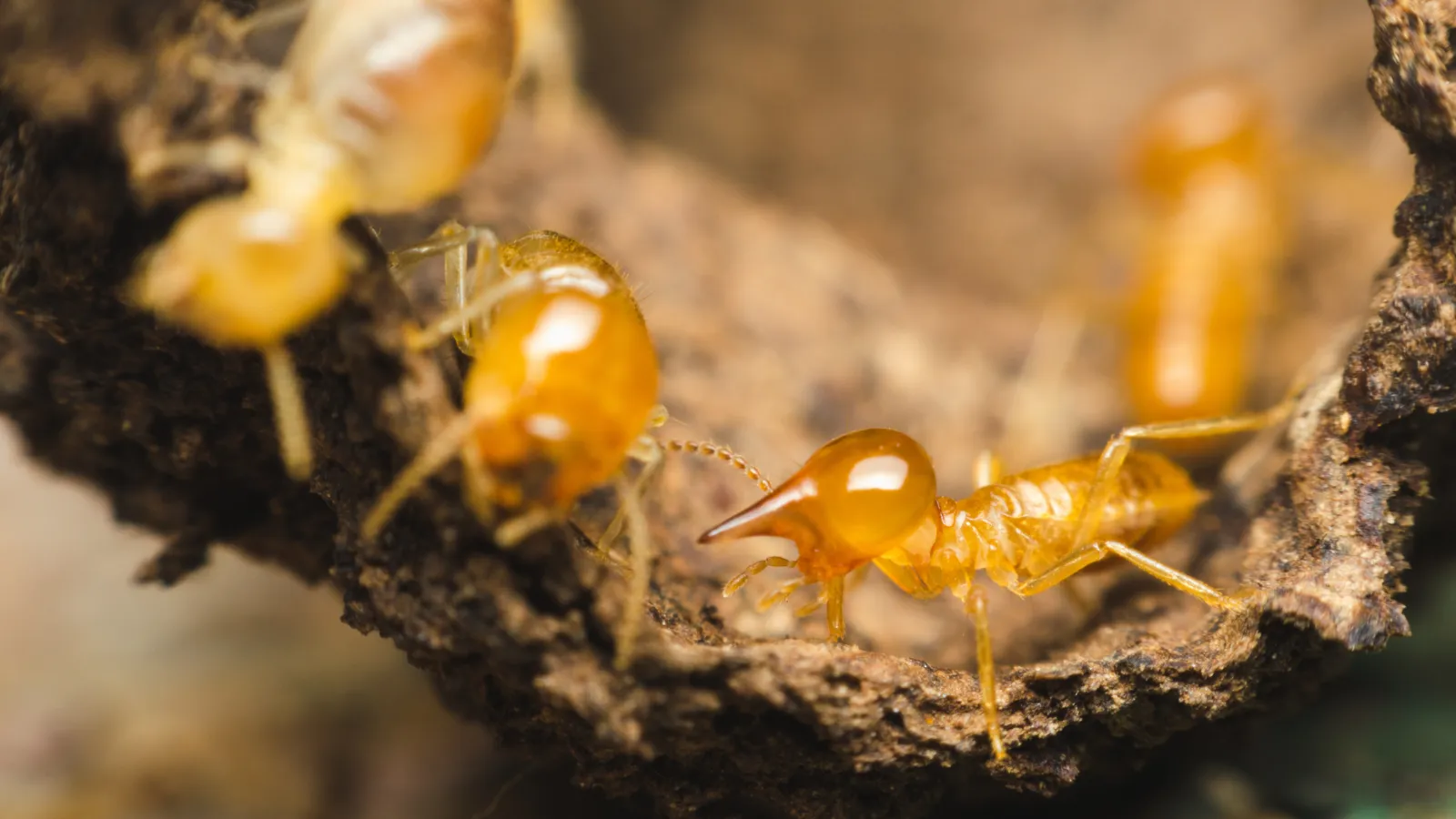Environmental Effect of Pest Control: Balancing Effectiveness With Sustainability
The environmental impact of pest control is an important concern that calls for a delicate equilibrium in between achieving effectiveness in making certain and taking care of parasites sustainability of our communities. From the usage of dangerous chemicals that permeate into our soil and water to the unintentional repercussions on non-target varieties, the repercussions of traditional parasite control techniques are far-ranging.
Damaging Chemicals in Insect Control
The utilization of damaging chemicals in bug control positions considerable environmental and wellness dangers that call for careful consideration and reduction approaches. Chemicals, herbicides, and pesticides are commonly made use of to eliminate insects, yet their prevalent application can result in unplanned consequences. These chemicals can infect soil, water sources, and the air, affecting not just the targeted parasites yet additionally valuable pests, wild animals, and people.

To deal with these threats, incorporated insect management (IPM) techniques are being promoted as an extra lasting choice. IPM entails a mix of methods such as organic control, environment manipulation, and the targeted use chemicals as a last hotel (ant control unionville nc). By adopting an all natural approach to pest control, we can decrease the ecological and wellness effects associated with unsafe chemicals while properly handling pest populaces
Effect on Non-Target Variety
Thinking about the unplanned repercussions of pest control approaches, the effect on non-target species is a crucial facet that calls for extensive analysis. While insect control measures aim to target particular parasites, other microorganisms in the environment may be accidentally influenced. Non-target types, including valuable insects, birds, mammals, and also plants, can suffer straight or indirect damage from chemical applications or organic control methods.
Insecticides made to fight a certain bug parasite might damage pollinators like or all-natural killers such as ladybugs. Biological control representatives, if not species-specific, can posture threats to unintended targets, interrupting the ecological equilibrium.
To alleviate the influence on non-target varieties, integrated pest administration (IPM) techniques that highlight an alternative technique to pest control are suggested. These methods focus on using eco friendly methods, decreasing damage to helpful microorganisms while successfully managing pest populaces. Performing comprehensive threat assessments and monitoring the results of pest control efforts are important action in safeguarding non-target varieties and advertising overall ecological community health.
Dirt and Water Contamination
Unplanned ecological consequences of pest control techniques extend past affecting non-target species, with substantial effects for soil and water contamination. Pesticides, herbicides, and chemical fertilizers made use of in insect control can seep right into the dirt and contaminate groundwater, positioning a hazard to both water and terrestrial environments. Dirt contamination can disrupt the equilibrium of microorganisms essential for nutrition biking and plant growth, resulting in lowered dirt fertility and efficiency. Additionally, these chemicals can persist in the setting for extensive periods, accumulating in the dirt and possibly going into the food web.
Water contamination is another vital problem connected with bug control practices. To alleviate dirt and water contamination from pest control tasks, incorporated bug administration methods that focus on sustainability and reduce chemical inputs are critical.
Air Contamination From Chemical Usage
Exposure to airborne pesticides during farming applications poses a considerable concern for air contamination control procedures. When chemicals are sprayed onto plants, they can volatilize right into the air and kind unstable organic compounds (VOCs) and other airborne toxins. These chemicals can add to the development of ground-level ozone, a major part of smoke that can have destructive results on human wellness, crop efficiency, and total air high quality. In addition, pesticide drift, where chemicals are brought by the wind to unplanned areas, can result in the contamination of nearby environments and water bodies.

Methods for Sustainable Bug Control
In the world of agricultural methods, carrying out sustainable pest control approaches is extremely important for preserving ecological equilibrium and guarding plant returns. Sustainable bug control stresses the use of eco-friendly techniques to handle parasite populations efficiently while minimizing harm to non-target microorganisms and ecosystems. Integrated Parasite Monitoring (IPM) is a commonly embraced strategy that combines biological, social, physical, and chemical control techniques to achieve lasting insect monitoring services.
One secret technique in sustainable pest control is advertising biodiversity within agroecosystems. By enhancing all-natural adversaries of parasites, such as parasitoids and predators, farmers can minimize the requirement for synthetic pesticides. Plant rotation and diversity are likewise efficient techniques to interfere with pest life cycles and produce less desirable conditions for parasites to grow. Additionally, using pest-resistant crop ranges and using strategies like trap cropping can help in reducing insect stress without relying greatly on chemical treatments. Ultimately, by incorporating these here are the findings lasting insect control techniques, farmers can achieve a balance in between pest administration efficiency and environmental stewardship.
Conclusion
In verdict, the environmental influence of insect control methods must be thoroughly thought about to balance effectiveness with sustainability. Unsafe chemicals utilized in parasite control can result in soil and water contamination, air contamination, and injury non-target varieties - termite control services. It is vital to execute lasting bug control techniques to minimize these adverse effects on the setting and advertise a healthier community for future generations
By taking on an all natural approach to pest control, we can reduce the environmental and health and wellness impacts connected with unsafe chemicals while successfully managing pest populaces.

To alleviate the air pollution created by pesticide use, it is essential to adopt integrated insect administration strategies that prioritize the use of non-chemical bug control techniques, such as crop turning, all-natural killers, and resistant crop ranges. Sustainable bug control highlights the use of ecologically pleasant methods to handle insect populations effectively while lessening harm to non-target organisms and environments. Integrated Insect Management (IPM) is a commonly adopted method that incorporates organic, cultural, physical, and chemical control techniques to accomplish long-term parasite management options.